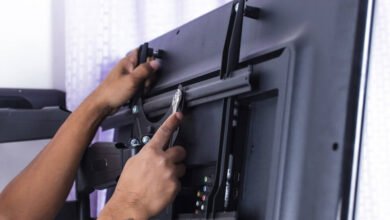Hot Water Repairs: Ensuring Comfort and Efficiency in Your Home

Hot water is a vital part of daily life—whether it’s for taking a shower, washing dishes, or doing laundry, we rely on it to keep our homes running smoothly. When your hot water system breaks down, it can cause major disruptions. That’s where hot water repairs come in. Here’s everything you need to know about getting your hot water system back in working order and ensuring its longevity.
Common Hot Water Problems
Hot water systems can face a variety of issues over time. Here are some of the most common problems that may require a repair:
- No Hot Water: One of the most obvious issues is when there is no hot water at all. This could be due to a faulty thermostat, a broken heating element, or an issue with the power supply.
- Water Temperature Fluctuations: If your hot water temperature fluctuates, it might be due to a malfunctioning thermostat, a faulty valve, or sediment buildup in the tank.
- Strange Noises: If your hot water system is making popping, banging, or whistling sounds, it could indicate mineral deposits or air bubbles in the tank, which may require draining and flushing.
- Leaks: Leaks around the base of the water heater are a serious concern, as they could be a sign of corrosion or cracks in the tank. Leaks often need immediate attention to prevent further damage.
- Low Water Pressure: If your hot water pressure is low, there may be a blockage or a valve malfunction, which can often be addressed by a professional plumber.
- Discolored Water: Rusty or brown-colored water often points to a corroding tank or pipes, which can affect the quality of your hot water.
When to Call a Professional Plumber
While some minor issues can be tackled on your own, most hot water repairs require the expertise of a licensed plumber. It’s essential to call a professional when:
- You notice any of the common issues mentioned above and can’t identify or fix the problem yourself.
- Your system is old or has had ongoing issues, which may require more than a simple fix.
- You need to ensure the repairs are up to code and that your system is working efficiently and safely.
Attempting to repair a hot water system without the proper knowledge can be risky. Plumbing systems often involve electricity or gas connections, and working on these without experience can lead to serious accidents.
How Hot Water Repairs Work
When you call a professional plumber for hot water repairs, here’s what you can expect:
- Inspection: The plumber will begin by inspecting your hot water system to diagnose the issue. This may involve checking the thermostat, heating elements, valves, and pipes to identify any faulty components.
- Troubleshooting: Once the problem has been identified, the plumber will provide a solution. This may involve replacing broken parts, adjusting the settings, or flushing the tank to remove any sediment buildup.
- Repairs and Maintenance: After troubleshooting, the plumber will perform the necessary repairs, such as fixing leaks, replacing the heating element, or resolving issues with the thermostat. They may also offer tips on how to maintain your hot water system to prevent future problems.
- Testing and Final Checks: Once the repairs are complete, the plumber will test the system to ensure it’s working properly. They will also check for leaks and ensure the system is operating at optimal efficiency.
Tips for Maintaining Your Hot Water System
Regular maintenance can help extend the life of your hot water system and reduce the likelihood of needing major repairs. Here are some tips to keep your system running smoothly:
- Flush the Tank: Sediment can build up in the tank, affecting efficiency and causing overheating. Flushing the tank once a year can help prevent this.
- Check the Anode Rod: The anode rod helps prevent corrosion in the tank. Regularly check it and replace it if needed.
- Inspect for Leaks: Periodically check for leaks around the tank or pipes. Early detection can prevent more extensive damage.
- Adjust the Temperature: Setting the thermostat to a temperature of 120°F (49°C) is ideal for both comfort and energy efficiency.
Why Choose Professional Hot Water Repair Services?
- Expert Diagnosis: A licensed plumber has the experience and tools to quickly and accurately diagnose the issue.
- Safety: Hot water systems are often connected to electricity or gas lines, so professional repairs ensure safety during the repair process.
- Long-Term Savings: A professional repair ensures the job is done right, which can help you avoid recurring issues and expensive repairs in the future.
- Peace of Mind: By hiring an expert, you can be confident that your hot water system will be restored to its optimal functioning, providing comfort for your home.
Conclusion
Hot water system replacement are essential for maintaining comfort and efficiency in your home. While some minor issues can be handled on your own, complex problems should always be addressed by a licensed plumber. By staying on top of repairs and regular maintenance, you can ensure that your hot water system remains reliable for years to come. Don’t hesitate to reach out to a professional whenever your hot water system shows signs of trouble—quick action can save you money and stress in the long run.




